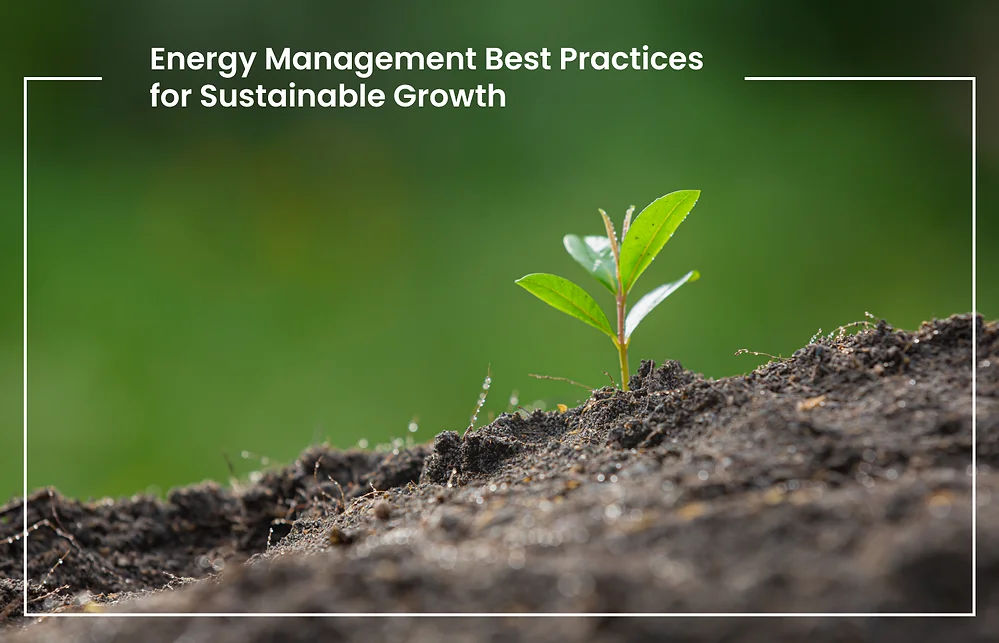Energy management with environmental consciousness and sustainable business practices has emerged as a critical aspect of corporate ESG strategies. Organizations can simultaneously promote sustainability and enhance their ESG performance by optimizing energy efficiency and reducing costs.
In this blog, we will explore energy management best practices that help maximize energy efficiency, cost savings and align with ESG principles.
Conduct an Energy Audit with ESG Focus:
Initiate an energy audit with a specific emphasis on ESG principles. Assess the environmental impact of energy consumption, identify inefficient areas, and pinpoint improvement opportunities. This audit should consider energy usage’s social and governance implications, such as employee safety, supply chain transparency, and community engagement. By aligning the audit with ESG objectives, you can ensure that your energy management efforts contribute to a holistic sustainability strategy.
Set Energy Optimisation Targets:
Establish energy reduction targets that align with your organization’s ESG commitments. These targets should reflect environmental and social considerations, such as reduction of greenhouse gas emissions, adoption of renewable energy, and employee well-being. By integrating ESG metrics into your energy reduction targets, you demonstrate a comprehensive commitment to sustainability and can effectively track progress toward your goals.
Promote ESG Awareness and Training:
Educate employees and stakeholders about the importance of energy management within the broader context of ESG principles. Foster a culture of sustainability by organizing training sessions, workshops, and awareness campaigns highlighting energy conservation’s social and governance aspects. Encourage employee engagement and involvement in ESG initiatives, creating a sense of collective responsibility toward achieving sustainability goals.
Opt for ESG-aligned Energy-Efficient Equipment:
Invest in energy-efficient equipment that aligns with ESG criteria. Consider products certified by reputable eco-labels and standards emphasizing resource conservation, eco-friendly manufacturing processes, and social responsibility. Upgrading to such equipment reduces energy consumption and demonstrates a commitment to ESG principles throughout the supply chain.
Implement ESG-driven Energy Management Systems:
Deploy energy monitoring and management systems that capture ESG-related data alongside energy usage information. Integrate ESG indicators into your energy management software to track and analyze social and governance aspects of energy consumption. Monitor and report on emissions intensity, supplier diversity, and labor standards to ensure transparency and accountability in line with ESG objectives.
Optimize HVAC Systems:
Enhance the energy efficiency of your buildings while considering ESG factors. Optimize the building envelope through sustainable construction materials, adequate insulation, and eco-friendly windows to reduce heat loss or gain. Upgrade HVAC systems with energy-efficient technologies prioritizing indoor air quality and occupant well-being. This integrated approach aligns energy optimization with social sustainability, creating healthier and more environmentally conscious work environments.
ESG-oriented Behavioral Changes:
Promote ESG-aligned behavioral changes within the organization to drive energy efficiency. Encourage employees to adopt practices that consider social and governance aspects, such as responsible resource use, waste reduction, and fair treatment of workers. Foster a sense of collective responsibility for ESG goals, encouraging employees to be proactive in suggesting and implementing energy-saving measures that align with broader sustainability objectives.
Regularly Monitor Energy Performance:
Continuously monitor and review energy performance while considering ESG factors. Use energy management software or engage ESG consultants to track energy usage, assess ESG metrics, and generate comprehensive reports. Regularly evaluate these reports to identify deviations from ESG-aligned targets and implement corrective actions. You can ensure ongoing progress toward sustainable growth by actively managing energy performance within an ESG framework.
Conclusion:
By integrating energy management best practices with ESG principles, organizations can achieve significant energy savings, reduce costs, and enhance their sustainability goals. Embracing an ESG-oriented approach to energy management helps protect the environment and strengthen social and governance commitments, fostering a more sustainable and responsible future for businesses.

